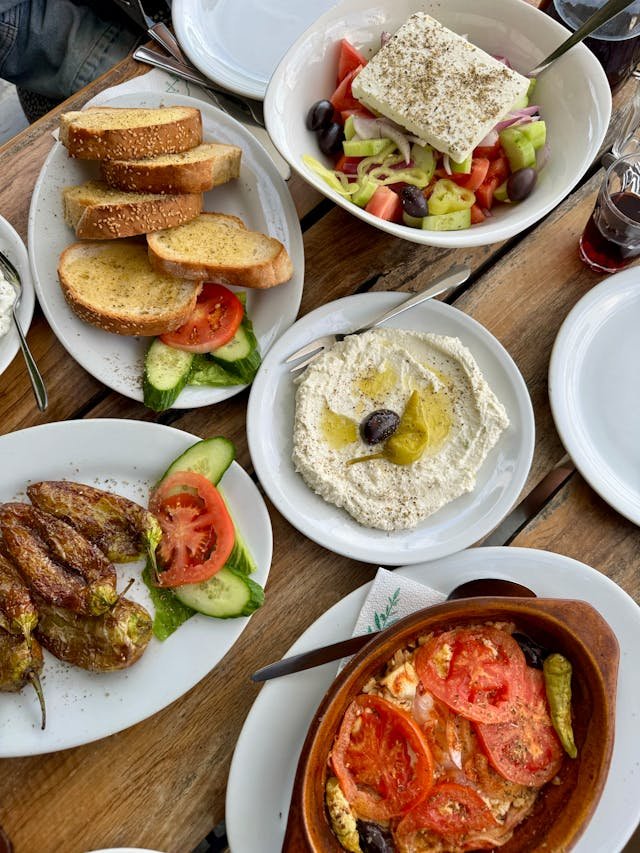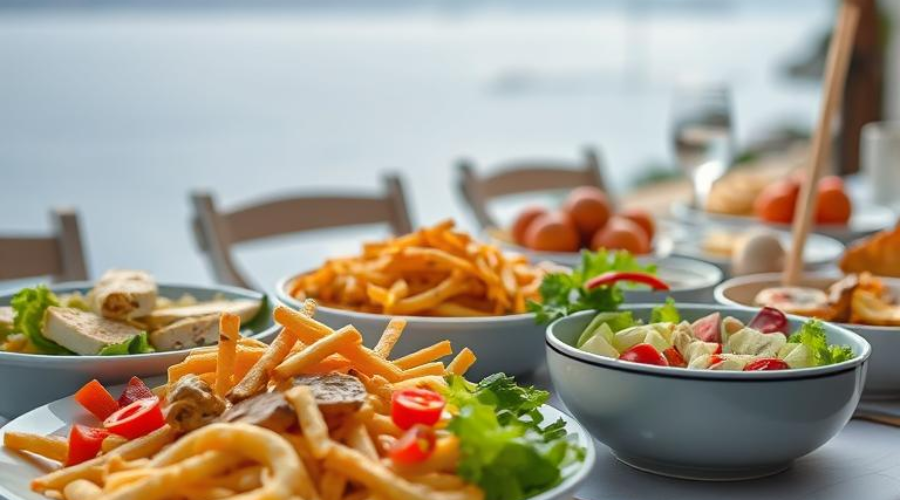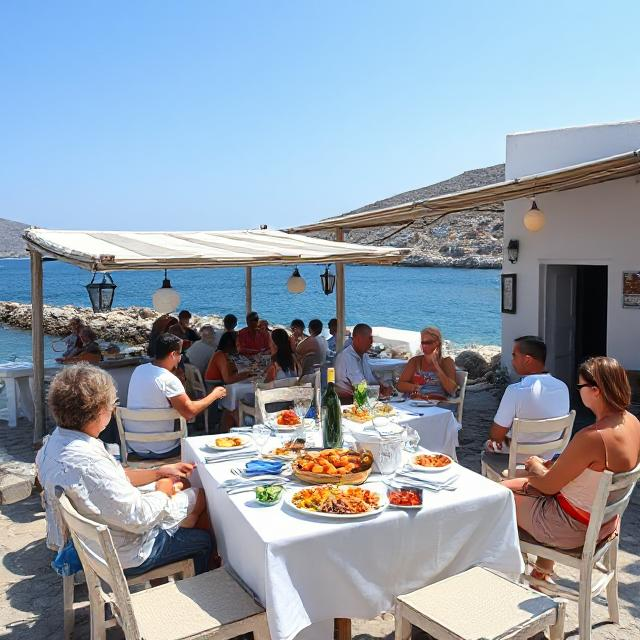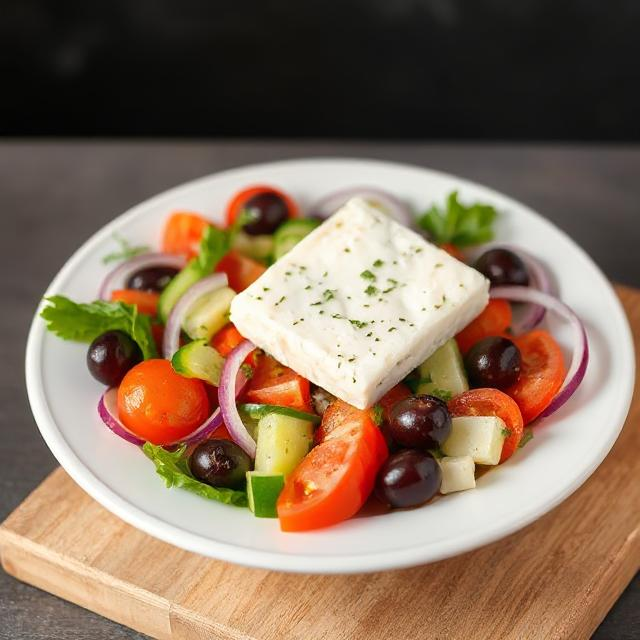Local Greek Flavors and Traditions: A Gastronomic Tour of Greece
Local Greek Flavors and Traditions: A Gastronomic Tour of Greece
Greece, a land of ancient myths and sun-drenched islands, offers a culinary journey as rich and diverse as its history. Beyond the iconic Parthenon and the azure waters of the Aegean, a world of local Greek flavors and traditions awaits, inviting you to embark on a gastronomic tour that will tantalize your taste buds and immerse you in the heart of Greek culture.

The Foundation: Fresh, Local Ingredients
At the core of Greek cuisine lies a deep respect for fresh, seasonal ingredients. The fertile soil and Mediterranean climate provide an abundance of produce, from sun-ripened tomatoes and fragrant herbs to succulent olives and citrus fruits. Local markets, vibrant with colors and aromas, are a testament to this bounty, offering a glimpse into the daily life and culinary traditions of each region.

A Regional Tapestry of Flavors
Greece’s diverse landscape has shaped its culinary identity, with each region boasting its own unique specialties and traditions.
-
-
The Mainland:
-
- In the mountainous regions of Epirus and Thessaly, hearty stews and savory pies reign supreme. “Pita,” a flaky pastry filled with spinach, cheese, or meat, is a staple, while “kokoretsi,” grilled lamb offal, offers a taste of traditional Greek barbecue.
-
- Further south, in the Peloponnese, the fertile plains yield an abundance of olives, grapes, and citrus fruits. Kalamata olives, renowned for their distinct flavor, are a prized delicacy, while local wines, such as Agiorgitiko and Moschofilero, complement the region’s rich culinary heritage.
-
-

-
-
The Islands:
-
- The Aegean islands, with their sun-kissed shores and crystal-clear waters, offer a seafood lover’s paradise. Freshly caught fish, grilled to perfection, is a highlight, while local Greek flavors and specialties like “saganaki,” fried cheese, and “dolmades,” stuffed grape leaves, showcase the islands’ culinary creativity.
-
- Crete, the largest of the Greek islands, boasts a unique cuisine known for its simplicity and health benefits. “Dakos,” a barley rusk topped with tomatoes, feta cheese, and olive oil, is a Cretan classic, while local herbs and wild greens add a distinctive flavor to the island’s dishes.
-
- The Ionian Islands, influenced by Venetian rule, show a different culinary profile. “Sofrito” a beef stew cooked with a white wine sauce, and “Pastitsada” a rich meat sauce served over pasta, show the Italian influence on these islands.
-
-

-
-
Athens:
-
- As the capital city, Athens offers a melting pot of local Greek flavors, with traditional tavernas serving up classic dishes alongside modern restaurants showcasing innovative culinary creations. From souvlaki and gyros to moussaka and pastitsio, Athens provides a comprehensive introduction to Greek cuisine.
-
-

Also read: 7-Day Itinerary for Athens, Greece: A Journey Through History and Culture
Traditions and the Social Fabric of Food
In Greece, food is more than just sustenance; it’s a social experience, a way to connect with family and friends. Meals are often shared, with plates of meze, small dishes meant for sharing, adorning tables and encouraging conversation.
-
-
The Taverna Experience:
-
- The traditional Greek taverna is a cornerstone of Greek social life, a place where locals gather to enjoy food, wine, and good company. With their relaxed atmosphere and warm hospitality, tavernas offer an authentic taste of Greek culture.
-
-
-
-
Festivals and Celebrations:
-
- Food plays a central role in Greek festivals and celebrations, with each occasion marked by its own culinary traditions. From Easter feasts with roasted lamb to Christmas sweets like “melomakarona” and “kourabiedes,” food is an integral part of Greek cultural identity.
-
-
A Culinary Journey for the Senses
A gastronomic tour of Greece is an adventure for all the senses. The vibrant colors of local markets, the fragrant aromas of herbs and spices, the tantalizing local Greek flavors of traditional dishes, and the warm hospitality of the Greek people all combine to create an unforgettable experience.
Tips for Your Gastronomic Tour:
-
- Explore local markets: Immerse yourself in the sights, sounds, and smells of Greek markets.
-
- Dine at traditional tavernas: Experience the authentic flavors and warm hospitality of Greek tavernas.
-
- Take a cooking class: Learn to prepare classic Greek dishes and bring a taste of Greece home with you.
-
- Sample local wines: Discover the diverse flavors of Greek wines, from crisp whites to robust reds.
-
- Embrace the meze tradition: Share small plates with friends and family for a truly Greek dining experience.
Embark on a gastronomic tour of Greece and discover a world of local flavors and traditions that will leave you with a lasting taste of this enchanting land.
Also read:






